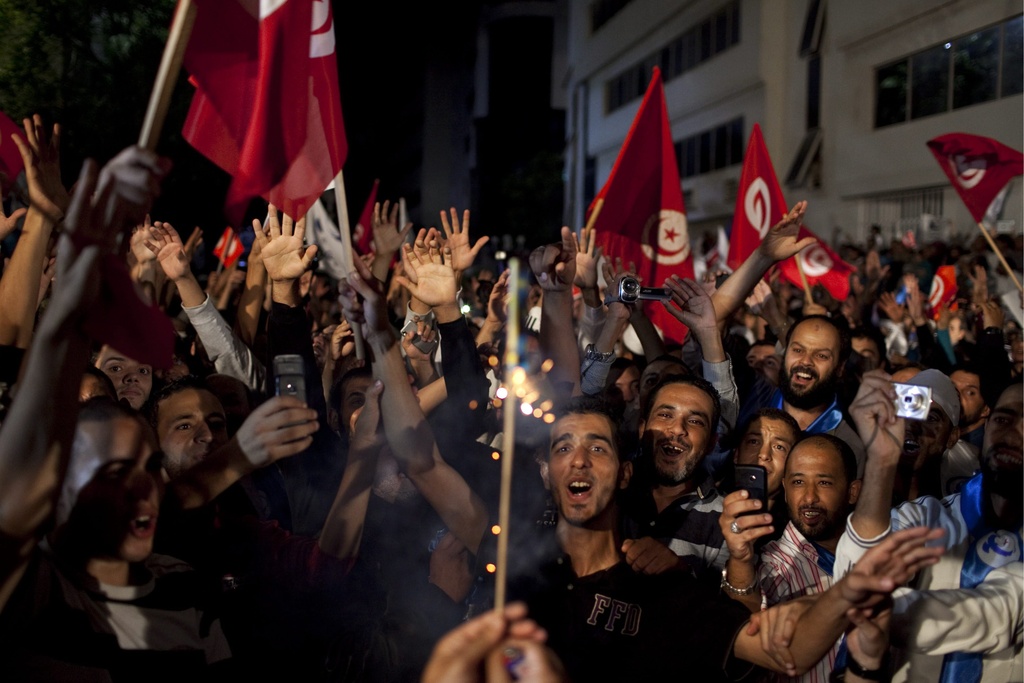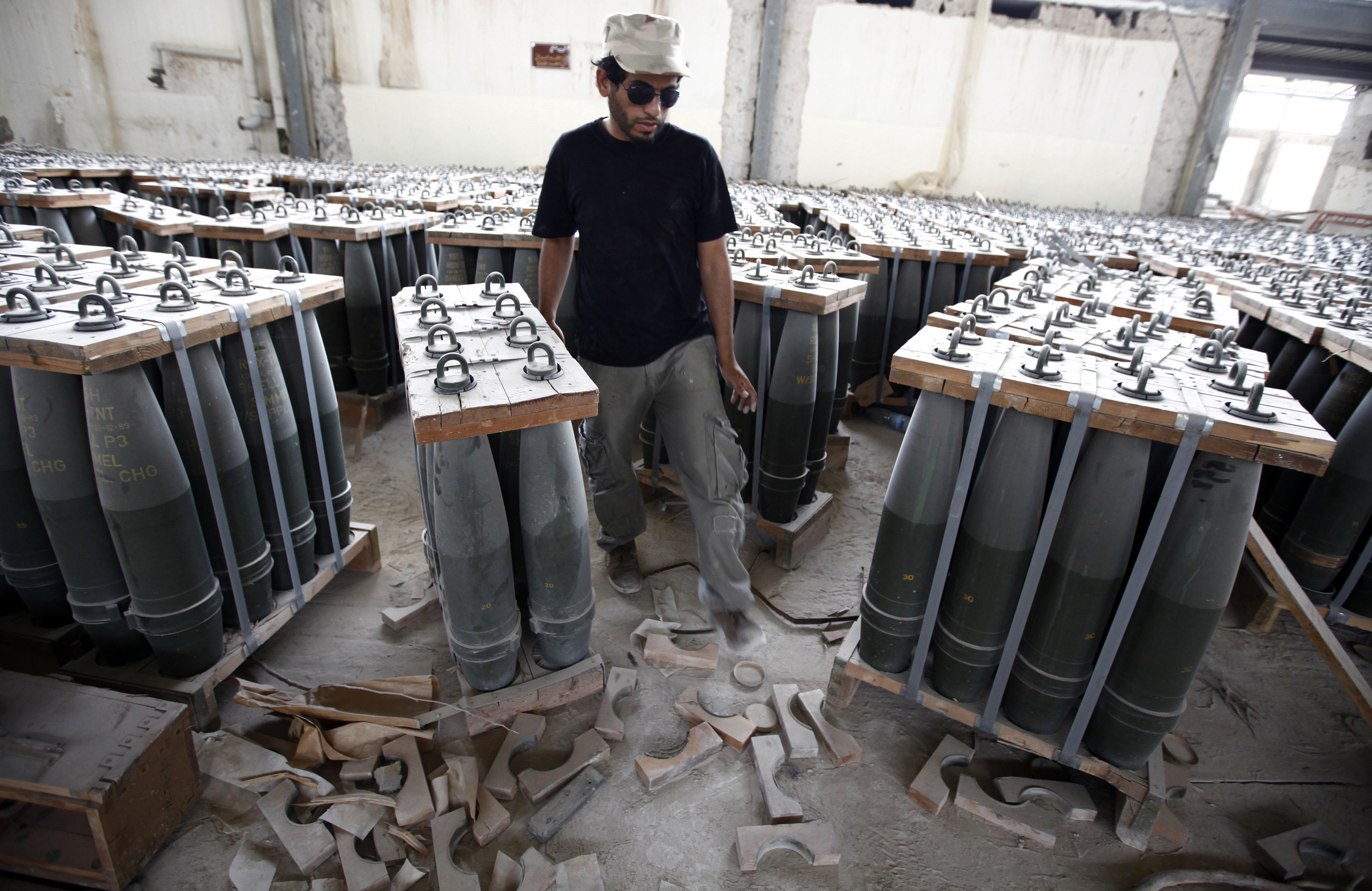“I don’t see any sign of an Arab Spring”

The enduring polarisation between secularists and Islamists is masking the real issues affecting the Arab world, warns Swiss Islamic scholar Tariq Ramadan.
He was in Geneva on Wednesday to give his critical take on the recent upheavals in North Africa and the Middle East as described in his new book, “Islam et le réveil arabe” (Islam and the Arab awakening).
The intellectual remains cautious over the turmoil in the Arab world and at this stage prefers not to talk about revolutions while waiting to see real alternatives emerging from the former dictatorial regimes in Tunisia, Egypt and Libya.
“I call what happened uprisings rather than revolutions and I don’t see any sign of an Arab Spring,” he told reporters on Wednesday.
On Monday Tunisia’s election commission issued the final results of the October 23 national election, confirming the dominant position of the moderate Islamist Ennahda Party.
The election was held nine months after Tunisians overthrew President Zine el-Abidine Ben Ali, who had ruled with an iron fist for 23 years.
The once-banned movement has taken 89 out of 217 seats in the newly elected assembly, which will write the fledgling democracy’s new constitution and appoint an interim government ahead of new elections in the next year or so.
But Tunisia’s secularists said their fears about an Islamist takeover were being realised on Tuesday after a senior Ennahda official invoked the revival of a caliphate, or Islamic state.
Ramadan called for an end to the superficial polarisation between secularists and Islamists, which is “one of the biggest traps for the Arab world today”.
Secularists present themselves as defenders of democracy with liberal religious views but many of them are from the wealthy elite, disconnected from the reality and often tied to the dictatorships, he said. On the other side are the Islamist movements which claim to have religious legitimacy and be in touch with the street which is not always true.
“What bothers me is that this polarisation legitimises each side without leading to any kind of self-critique,” he said, adding that the new regimes should be judged on the social and economic programmes they implement.
Vigilance
“At the moment Ennahda says yes to everything: women’s rights, state of law, and collaboration with the IMF (International Monetary Fund) – this is why it scares the west so much. We need to be vigilant,” said Ramadan.
Ennahda’s actions are being scrutinised closely in Egypt and Libya, where Islamists who until now have been banned from political life are also gaining in influence after uprisings forced out entrenched rulers.
Parliamentary elections in Egypt are scheduled for November 28. Ramadan, who teaches contemporary Islamic studies at Oxford University, says he fears the military might hijack the process.
“Today Egypt is under the authority of the army. Bloggers are being imprisoned, there are military tribunals and any attempts to bring to trial former regime members are postponed,” he said, adding that he had been advised not to visit the country right now.
Syria
While Libya was a unique case with the focus very much on the North African state’s huge oil reserves and its strategic position, Syria is much more complex, said Ramadan.
“We are touching the Shiite-Sunni Muslim divide, relations with Iran and the US/EU-China/Russia divide – it is very complex and that’s why things haven’t moved.”
On Wednesday Turkey and Arab League members called for urgent measures to protect Syrian civilians from a brutal government crackdown. At a meeting in Morocco, they also said they were “against all foreign intervention in Syria”.
The statement came following reports that Syrian army defectors had attacked a major military base near Damascus, the first such reported assault on a major security facility in the eight-month uprising against President Bashar al-Assad.
“I can see an end to the regime but no start to any kind of democratic process,” said Ramadan. “I think al-Assad will fall but to who and how? No one wants the current Syrian opposition.”
External influences
In his book the Swiss Muslim scholar looks at how events started in Tunisia, Egypt and elsewhere, the external influence of foreign powers and their changing strategies.
From 2004 activists and bloggers from Egypt, Tunisia, and elsewhere in North Africa received non-violent training, supported financially by the United States State Department, said Ramadan.
“When Egypt decided to cut off the internet in January, Google gave satellite details to bloggers but in Syria it refused,” he added.
He believes the US and Europe were forced to review their strategies as they were facing aging dictatorial regimes that were turning eastwards as well as a growing influence of states like China, India, South Africa, Russia and Turkey in the region.
“Let’s not be naïve or conspiratorial. I totally oppose this idealistic appraisal of a movement that was born from nothing or young people who simply rose up,” he said.
Jan 19: freezes assets of former Tunisian President Ben Ali
Feb 11: freezes assets of former Egyptian President Hosni Mubarak
Feb 24: condemns use of violence in Libya, freezes assets of Moammar Gaddafi
March 2: increases humanitarian support in Libya
March 4: imposes sanctions against Libya
May 6: expresses concern about death sentences given in Bahrain
May 11: legal experts sent to Egypt to advise on release of blocked funds
May 18: imposes sanctions against Syria, orders freeze on assets held by members of regime
Aug 18: recalls ambassador to Syria
July 11: reinforces presence in Benghazi
Sept 12: tightens Syrian sanctions
Sept 29: appoints new ambassador to Libya
September: deploys human security advisor to Tunis
October: deploys human security advisor to Cairo
Source: Foreign Ministry
Tariq Ramadan was born in Geneva in 1962. He is the grandson of Hassan-al Banna, who founded the prominent Islamic movement, the Muslim Brotherhood, in 1928. His father, Said Ramadan, fled Egypt due to the persecution of that organisation and settled in Switzerland.
He holds an MA in philosophy and French literature and a PhD in Arabic and Islamic Studies from the University of Geneva. He is currently Professor of Contemporary Islamic Studies at Oxford University and is president of the Brussels-based think tank, European Muslim Network.
In 2004 he was barred by the US government from taking up a post at Notre Dame University in Indiana.
Ramadan has said he opposes the US invasion of Iraq and sympathises with the resistance there and in the Palestinian territories. He has condemned Islamic violence and promotes peaceful solutions but he has been dogged by allegations that he is an extremist. In January 2010 the US lifted his six-year visa ban.

In compliance with the JTI standards
More: SWI swissinfo.ch certified by the Journalism Trust Initiative

















You can find an overview of ongoing debates with our journalists here . Please join us!
If you want to start a conversation about a topic raised in this article or want to report factual errors, email us at english@swissinfo.ch.